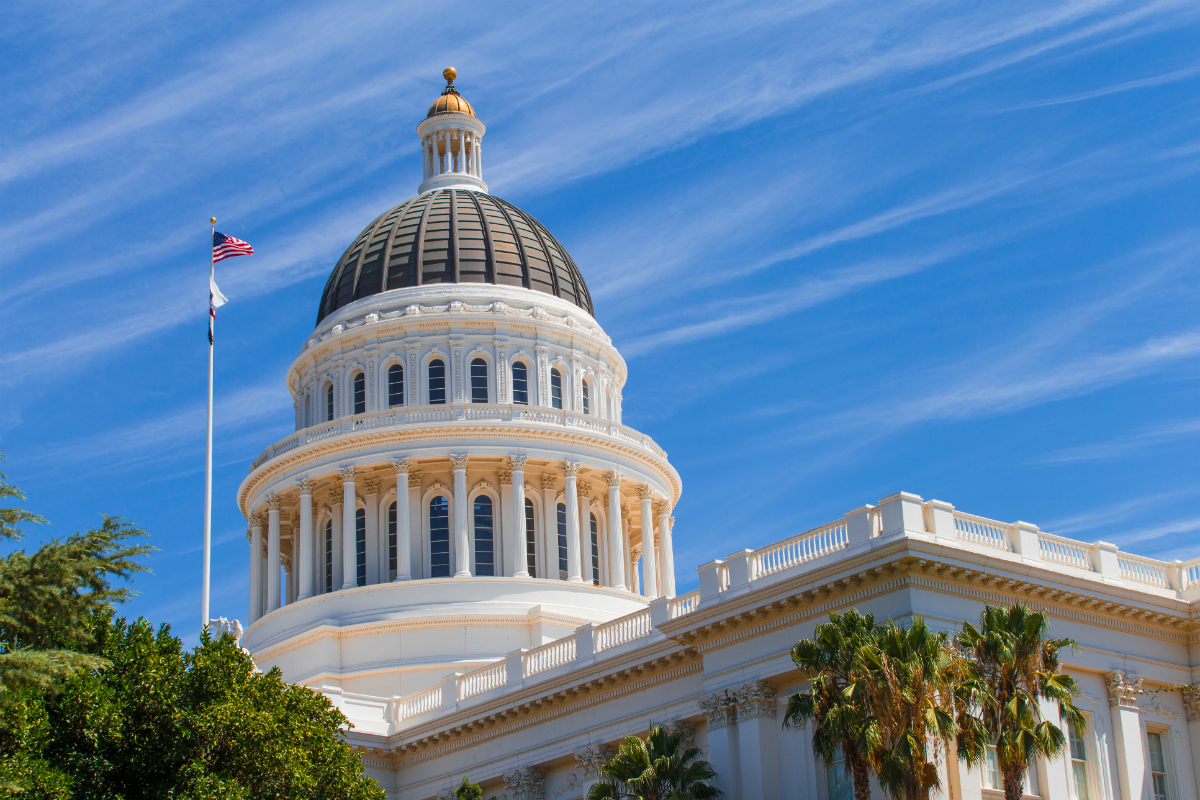On June 22, Gov. Gavin Newsom and the State Legislature announced an agreement on the state budget that largely reflected the budget proposal adopted by the Legislature earlier this month — but with some important modifications that pose concern for local educational agencies. The inclusion of provisions that were not present or disclosed in earlier summaries reinforced the wisdom of CSBA’s decision to avoid a full endorsement of any budget deals before the exact language of the terms was available.
This likely final budget agreement is better than the education community endured during the last major fiscal crisis that began in 2008, and it includes some improvements over both the Governor’s January Budget and May Revise proposals. Still, there are a few “rotten apples” in the deal that CSBA is analyzing closely and pushing back on to defend member interests, specifically a much narrower version of the original Proposition 98 maneuver, a school layoff freeze until March 2025 and a reliance on optimistic state revenue projections that may not come to pass.
Education funding protected; Prop 98 suspension upholds Constitution
The budget agreement largely responds to CSBA’s advocacy to protect the integrity of Prop 98. CSBA took issue with the Governor’s earlier budget proposals, which would have created a new interpretation of Prop 98. Earlier proposals would have harmed education funding in the outyears and set a terrible precedent for subverting Prop 98 when convenient. In response, CSBA created an effective advocacy campaign to push back on that proposal.
The 2024–25 state budget plan, reflecting recent negotiations between the Governor and legislative leaders, closes the remaining $28 billion projected budget shortfall. The budget plan includes $211.5 billion of general fund spending, $86.4 billion of spending from other state funds, and $153 billion from federal funds flowing through the state treasury. Relying on expanded net operating loss deductions and tax credits for medium and large businesses increases state revenues, which benefits education funding under Prop 98. The agreement reflects a two-year plan to balance the state budget and leaves $11 billion in state general fund reserves for future budget challenges.
Protection for outyear funding
Most importantly, the plan protects base education funding in the near term and includes fully funding the proposed 1.07 percent cost-of-living adjustment (COLA) for LEAs. It also adheres to the constitutional path permitted for suspending the Prop 98 Guarantee and assures restoration of school funding in future years by paying back the funding owed to schools per Prop 98. The amount of suspended funding, also known as maintenance factor, is projected to be $8.3 billion; $4 billion of which would be repaid immediately in the coming fiscal year, leaving a remaining $4.3 billion to be repaid in the outyears.
The 2024–25 State Budget package also protects classroom funding in the near term, despite recent fluctuations in state revenues. TK-12 spending is estimated at $136 billion in 2024–25 from all funding sources, with per-pupil funding growing to over $24,000 from all sources, including about $18,400 per student from Prop 98 sources. With suspension of the 2023–24 Prop 98 Guarantee, school funding receives constitutional protection for needed growth in the coming years, despite other areas of the budget contracting.
Concerns reduced — but worrisome elements remain
There are three main areas where concerns remain.
First, the budget includes language that mimics the Governor’s initial proposed Prop 98 “funding maneuver,” but in a much more limited and narrowly tailored fashion. As opposed to a blanket effort to undermine the Prop 98 Guarantee, the revised proposal included in the education budget trailer bill limits the maneuver to scenarios where both of the following must occur:
- The federal Internal Revenue Service extends personal and corporate tax filings by more than two weeks from the traditional April 15 filing deadline, and
- The federal income and corporate income tax filing accounts for more than 50 percent of the state’s total personal and corporate tax revenue in the fiscal year immediately preceding the fiscal year impacted by the tax filing extension.
The initial assessment of this language indicates that the circumstances of the state’s ability to utilize the Governor’s proposed funding maneuver would be extraordinarily limited in scope. However, this does not fully assuage CSBA’s concerns. The impact this more limited proposal presents to the future of Prop 98 remains a significant ongoing concern.
CSBA staff is closely analyzing this more tailored and restricted language to ensure that its application does not negatively or permanently impact how the Prop 98 minimum funding guarantee is calculated. Unfortunately, this language is expected to remain in the education budget trailer bill, which CSBA expects the Governor to sign by June 30. If this comes to fruition, then CSBA will work to try and get the Legislature’s and Governor’s support for an alternative approach during the remaining months of the legislative session. CSBA will also simultaneously explore the legal options to address the potential unconstitutional nature of this proposal.
Deal prohibits layoffs until March 2025
Second, the agreement includes language that temporarily freezes classified and credentialed staff layoffs for the remainder of the 2024 calendar year. The practical effect is that this last-minute language agreed to by the Governor, Legislature and organized labor would prohibit LEAs from laying off classified and credentialed staff in the coming fall months due to the funding of the COLA at less than 2 percent.
CSBA objects to this provision — which was concealed until the final moment — because financial flexibility for boards is needed to allocate funds in a way that supports the LEA’s strategic plan, especially during difficult financial times. Layoffs are a last resort, but also necessary in some cases so boards can fulfill their fiduciary responsibility as stewards of the school district or county office of education and provide for its sustainability. Worse yet, this provision may not accomplish its intended purpose of reducing layoffs. Instead, by preventing boards from using a tool now to incrementally reduce pressure on school finances before it builds to unacceptable levels, the layoff freeze could result in more layoffs in March 2025. This could force LEAs to issue a greater number of reduction-in-force notices than they would have approved if allowed to conduct layoffs in the second half of 2024, ahead of the March 15 “pink slip” notification deadline.
For all these reasons, CSBA is resisting the inclusion of the layoff freeze provision in the final budget, but our prospects for success are dim given the lateness of the hour and the likelihood that labor reached a special deal with the Legislature and the Administration to ensure this clause was wedged into the budget agreement and hidden until the last possible moment.
Reliance on optimistic revenue projections could impact outyear funding
The third area of concern is the inclusion of increases in state revenues and a reliance on optimistic outyear revenue projections. The increase in state revenues will come from a revenue and taxation proposal adopted by the Legislature to speed up the suspension of some tax credits and increase general fund revenues by about $5 billion.
With overall general fund revenue at about $211 billion in the budget year, there is a required increase to the Prop 98 Guarantee to $115.3 billion. On the one hand, increased funding for public education is welcome news; however, if these revenues do not materialize, it could potentially raise outyear funding issues that could impact the state’s ability to meet the Prop 98 minimum funding guarantee for public education and repay the “maintenance factor” in the coming years.
The final budget also maintains ongoing spending for TK-14 programs at the May Revise level but reduces the year-over-year deferral schedule. This includes a deposit into the Prop 98 Reserve in the coming budget year, which will leave a balance of $1.1 billion at the close of 2024–25. These are improvements over the prior deal.
What happens next?
CSBA staff is analyzing the budget and will offer further analysis of the proposal. The Legislature is expected to vote on the remaining budget bills late tomorrow. The Governor will then have until June 30 to act on the budget for it to go into effect by July 1, 2024.





